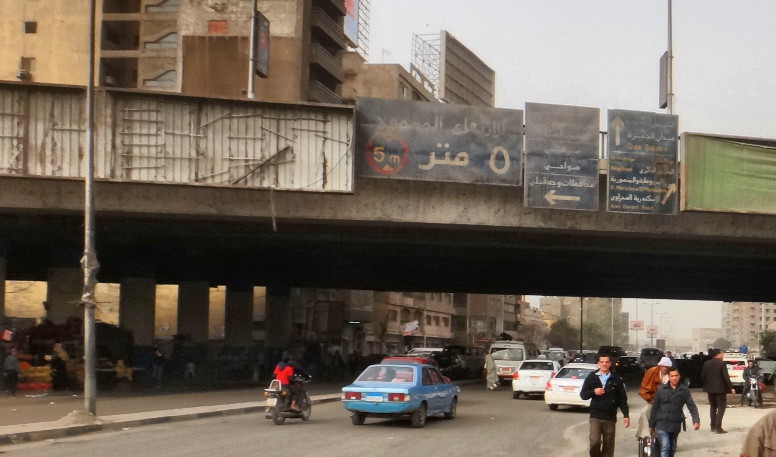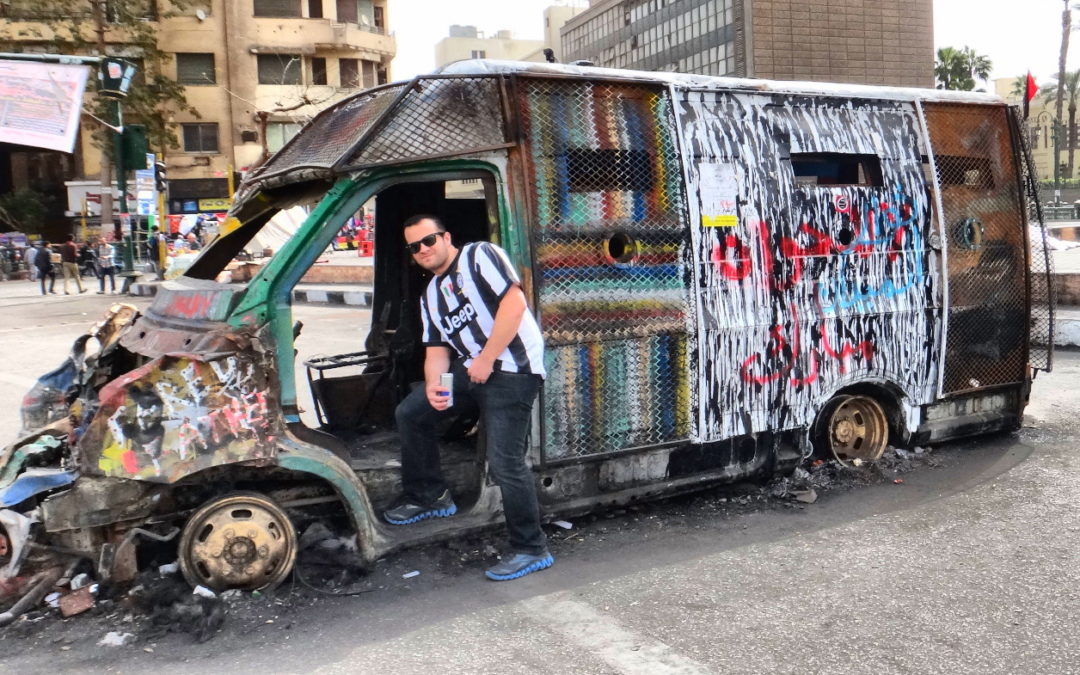It was 2012 and my buddy and I had just booked the first leg of an incredible journey to Southeast Asia; an inbound flight to Hanoi, Vietnam. As the rest of the itinerary fell into place, we needed to book a return flight, and as you may know, one-way international flights are oftentimes even more expensive than roundtrip flights. We were flying into Asia via South Korea, but wanted to possibly get a layover elsewhere on our return flight. While playing around with fly.com, I found a layover in Cairo would fit our itinerary perfectly. Without much thought, we booked it thinking how fun it would be to see and possibly take part in some of the Arab Spring protests.
I, like many American males, always thought of myself as being tough and hardened, when in reality, I have had a pretty cushy life to this point. As such, when I hear about ‘Revolutions’ occurring in Ukraine or in the Arab Spring countries, I think to myself how awesome it would be to be present in those places during such pivotal moments in the histories of these countries. I mean, imagine being in St. Petersburg during the Bolsheviks uprising! Of course, these thoughts are completely ignorant as these revolutions tend to involve scenarios where the situation for a group of citizens has become so desperate in a given country that people have no choice but to sacrifice their own lives in hopes of imparting some sort of change to make the country a better place for future generations. Yes, I know, it is way more complicated than that, and in some instances, the rebels are not necessarily ‘the good guys.’
Despite the warnings by those around us, we remained excited for our 3 days in Cairo. Due to the uprising in Egypt, we decided it would be wise to stay in a five-star hotel which would presumably be safe. My buddy worked for an international financial institution which enabled him to secure discounted rooms at their preferred hotel in the region, The Intercontinental Semiramis. We had been advised to stay near the U.S. Embassy and this hotel was literally 2 blocks away. We booked it. Then, about a week before we departed, international news headlines reported that a hotel in Cairo had been stormed by the rebels and all of the inhabitants were taken hostage. Gunshots and fire bombs were used to overpower the staff and take over the building. Of course it was the Intercontinental Semiramis. Our giddiness turned to dread regarding the Cairo leg of our journey. It seemed as though Westerners were actually being targeted in order to garner the attention of the international community. Prior to this we had been telling ourselves that the fighting was between two rival political factions and were not really a target and thus not at risk. The reality of the circumstances, however, began to sink in. To make matters worse, the newly elected regime led by Mohammad Morsi was now under attack by a second iteration of rebels and Morsi was losing command of the Army, Police and other government serving ministers. I won’t get into politics here, but basically Morsi seemed like a decent candidate until he was elected into power, after which he revoked any legislative and judicial powers which might challenge him, and essentially elevated himself to dictator-like status while promoting his Muslim Brotherhood cronies into all the important government positions. This understandably didn’t sit well with the disgruntled citizens and thus resulted in a second wave of revolutionary protests. Just in time for our visit. Believe me, I am by no means trying to make this about myself. As I said, this is the sort of thing that people are literally giving up their lives for. I am just a stupid Westerner who thinks it’d be cool to witness a revolution. But we had probably bit off way more than we could chew. I reported my intentions to visit Egypt to the U.S. State Department and took all other necessary precautions before leaving. A revolution was once again in full force in Cairo, and all travel to the region was discouraged.
This trip would be a sort of coming of age for me. Up until this point, I had only really explored central America and Europe. Our travels through Vietnam, Malaysia, Cambodia, and Thailand had really given me a greater perspective on life and how we as Americans live in this little bubble. The craziest place I probably had visited before this was Russia (and believe me, it was pretty crazy).
Due to our growing fear for our safety in Cairo, we contacted and hired a professional tour guide who had been a minister of antiquities before the revolution. His driver would also serve as a body guard and carried a gun with him at all times. This was the real reason we hired him. We landed in Cairo and needed a visa on arrival. It was recommended that we just pay off a customs guy to get the Visa and so we did. This was our first taste of the state of corruption of this place. Before we knew it we were on our way to Giza. The highways were largely empty (I know during normal times, Cairo is famous for its traffic), and there was sort of an armageddon-type feel to the whole place. It seemed devoid of humans.
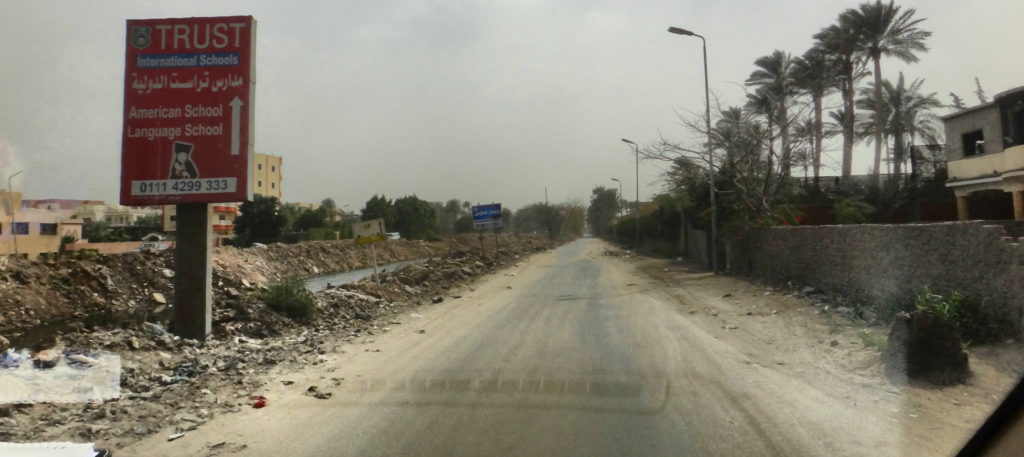
Any people we did see looked disheveled and exhausted. The prior year or so of fighting had visibly taken its toll on the city.
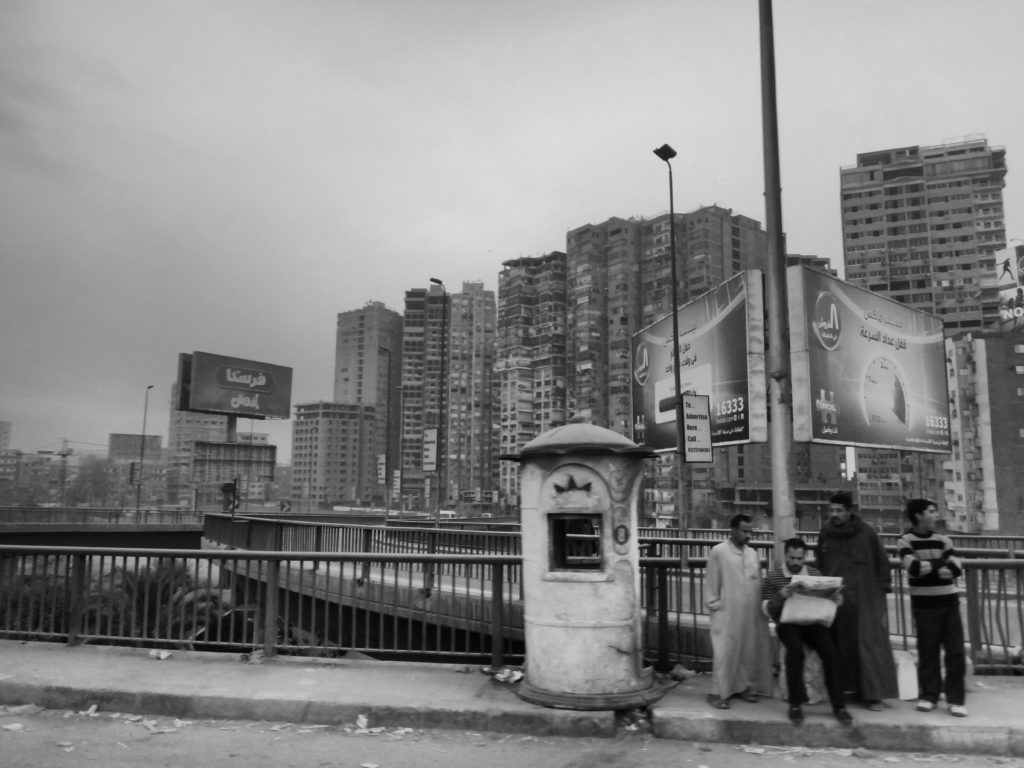
Our first day went by largely without a hitch. We visited the pyramids in Giza whereby Bedouin men with AK-47’s guarded the entrances to the tombs in place of the government employees which typically guarded the area. The Bedouins had no claim to the area, but they saw an opportunity to make some money after the government had all but abandoned the Giza Plateau for the time being. This was great for us as we had unrestricted access to the tombs and other areas surrounding the pyramids to which access is typically highly restricted. Entrance to each attraction was just one Egyptian Pound. We were left by ourselves to climb down into the various tombs and caverns within the great pyramid. There was also no one to stop us from climbing on top of the pyramids.
Our guide’s services included a hotel in Giza, which we respectfully declined for safety reasons. This turned out to be a wise decision as we visited the hotel to change clothes and shower after visiting the pyramids. Just outside the window a small protest started to kick up and then some rival factions seemed to be coming to blows due to some disagreement. Our guide explained that these people have nothing to do because all of them worked in the tourist industry and there were no tourists. We visited other sites during the day and had few issues. This led us to become increasingly brazen with regard to the security situation. Ancient sites were interesting, but we wanted to see some protests or some other civil unrest. We were taken to our hotel that night and given specific instructions by our guide not to leave the premises. The hotel staff echoed these warnings. On top of this, there was a military enforced curfew of 8 P.M. resulting from the current status of martial law. But it was Friday, and we knew that after Friday prayers people tended to become restless. So we were determined to set out in the direction of Tahrir Square, the epicenter of the protests and the entire revolution. Rebels were currently camped out in the center of the square (actually a circle) and were regularly holding demonstrations. The army was stationed in Garden City, pretty much forming a barrier between the protesters and the hotels/embassies of the neighborhood.
We told the hotel clerk we wanted to go out and get food. After some pleading with us not to leave, he realized how stubborn we were being and recommended a nearby fast food place. He called us a driver and gave specific instructions to the driver to not leave us. We were to briefly leave the car to get some food (Egyptian Koshari – – so good) and then immediately return to the car. But when we arrived at the restaurant we bribed the driver with some cash so he’d leave us after some convincing. We were finally on our own. Our first order of business after eating was to seek out the U.S. Embassy so we knew where to run in case things got heated (we watched Argo on the flight over). On the way, we passed the Intercontinental Semaranis. It was heavily damaged, abandoned and riddled with bullet holes. It is one thing to hear about these incidents on the news, but to witness the actual damage is another story. The road to the U.S. Embassy had several staggered, criss-crossing barriers to prevent a vehicle (presumably one with a bomb) from even coming close to the building. Although after we left a hijacked tank plowed through all these barriers en route to the embassy (luckily it was stopped before another Benghazi incident could occur).
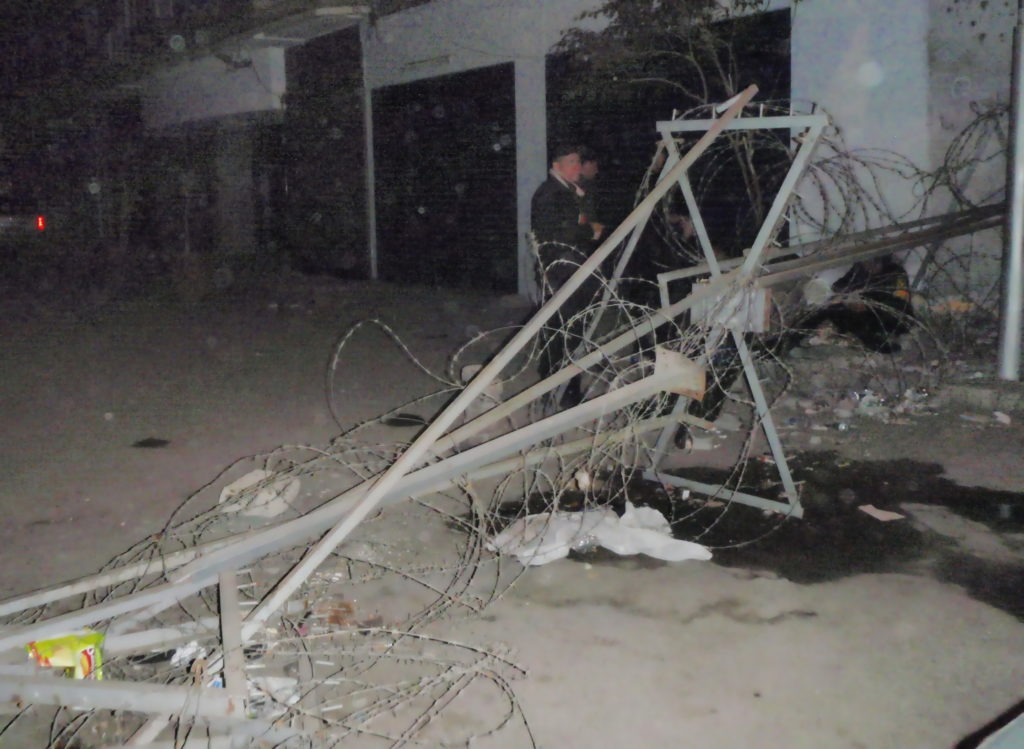
Egyptian army members stood guard around many of the barricades. They seemed a bit confused by our presence. Most law-abiding citizens heed the curfew, but these random westerners are here walking around amongst burned out buildings and makeshift tank barricades. We thought it best to just approach them. Although there was a language barrier, the army guys were extremely cordial. They were probably around our age or younger, and looked ill-prepared to fight a war. The one who spoke broken English explained that they had fought off an advancement just last night, and that was why the barricade was partly damaged. They held assault rifles and riot gear while addressing us. We asked how much they’ve used both, and they said very often as they pointed out marks and other damage on the equipment. Me, always taking it a step too far, whipped out my camera and asked for a picture. They declined for security reasons. They were, after all, fighting for what seemed to be an unpopular faction amongst the majority rebels. The strategic ground they were protecting has been contested on several occasions and the toll it took on these officers seemed to show.
They did, on the other hand, seem to perk up when we explained we were from New York. They were just as interested in us as we were interested in them. While conversing with them, I couldn’t help but feel guilty about what I was doing. Here I was, a spoiled western kid going out of my way to visit this hell on earth because I thought it would be “cool.” Meanwhile, these guys were putting their lives on the line every day and probably would rather be anywhere else in the world if only they could leave Cairo. They even let us play with their riot gear and volunteered to snap a photo of us. They probably thought we were nuts as we took swings at each other’s’ shields with the batons.
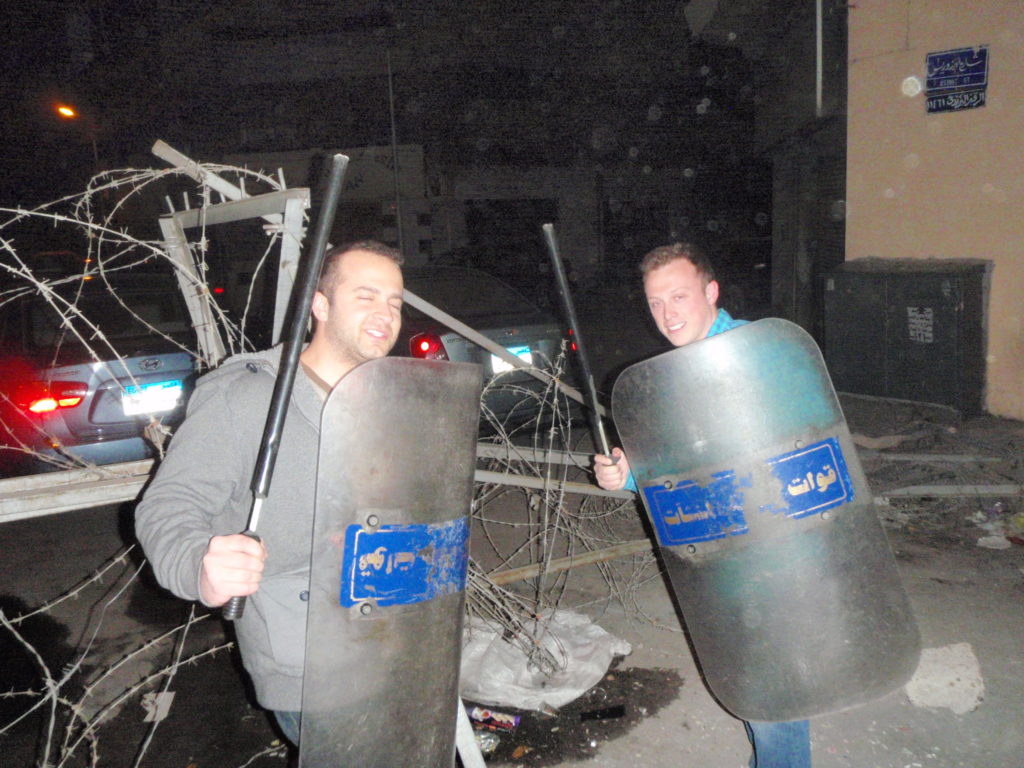
Upon reaching the embassy, it appeared as though it had been pretty much abandoned. We later found out that the U.S. had pulled out all but a few essential diplomatic personnel. Great! On top of this, it appeared that we had picked up a tail. Someone in all black was following us, and after several turns it appeared that he was not going away. He did not seem to be associated with the friendly army guys we had just met. A slight panic set in as I thought we’d possibly be apprehended for skirting the curfew. This is something that I can’t see going well seeing as though there is no clear central government or military in power. We decided it was probably best to approach the man instead of try to lose him. He greeted us with a stern look and immediately asked for identification. As soon as we showed him our U.S. Passports he seemed to smile, almost in relief. It turned out he was a private Egyptian security member, hired by the U.S., to guard the U.S. Embassy. The U.S. does not mess around. This guy was a legit militaristic presence, with a polished assortment of weapons and tools. Compared to the Egyptian Army guys we had seen, this guy was the real deal. Despite being an Egyptian Citizen, he had great English. You see, the U.S. does not trust the Egyptian Army to secure their embassy and protect the nearby premises. So they hire highly trained, private security forces as an added layer of protection. He was friendly and he explained to us that we had been out past curfew and that it was extremely dangerous for us to be out there. He showed us a 15 ft. concrete wall which had recently been set up by the army to stave off rebel advancements from Tahrir square towards the embassies. We told him of our desire to find the embassy for security reasons and he explained that there weren’t many personnel manning the embassy. He recommended returning to our hotel and he took down our information to that the U.S. Embassy would have it. He told us that the situation may grow violent in Tahrir Square tonight as things seemed to be coming to a head. We proceeded in the direction of our hotel while he followed us. But now, with our adrenaline pumping, we wanted more. All of the Egyptians we encountered seemed to be friendly and we thought that none of the people in Tahrir square would mean us any harm. So we hailed a cab and asked him to take us there. He obviously refused the baffling request. After some convincing, he said he would drive by Tahrir Square but would not stop, even at red lights, under any circumstance. The situation in the square had become somewhat dire and it seemed that the rebels were ready to attack anyone during a Friday night protest out of sheer frustration. One need only read any article about Western journalists attempting to cover the events within Tahrir. See, for example, http://www.csmonitor.com/World/Global-News/2011/0202/Anderson-Cooper-attacked-in-Tahrir-square-during-Cairo-protests
As we drove by Tahrir, things seemed somewhat under control. Some people were running here and there, while others carried on as if nothing was going on. A few projectiles were being thrown, but no gunshots or petrol bombs.
The road past was blocked off, and several rebels guarded the barricade. It was probably wise of us in the end to not have approached them. The rebels, while fighting for what seemed like a just cause, were hopelessly disorganized, and did not have any real hierarchy or orders. As such, their actions were erratic sometimes not representative of the cause for which they were fighting. Westerners who entered the square were routinely attacked for any number of reasons. The entire night was sort of strange. That night, from our hotel, we could hear several explosions and what we thought were gunshots, but we could not be sure.
We had come close, but still hadn’t actually ventured into the center of Tahrir Square. After seeing other sights of Cairo (including the Garbage City, which is a crazy story in and of itself), we pleaded with our guide Hambdi to venture into the square. We had just gotten out of the Museum of Antiquities which was right near the Square. This was our chance. After refusing several times, we told our guide that we would go in alone and come right back. He seemed way more scared than others about visiting the Square. This was because he worked for the government during Mubarak’s regime. As such, he could be considered an enemy to the rebels if identified. Reluctantly, he agreed to accompany us to the square under the conditions that we run if told to do so and identify ourselves as Italian or some other nationality if approached (I was wearing a Juventus jersey). The first and most striking thing we saw en route to the square was the Egyptian Security Headquarters building which had been attacked and set ablaze days earlier. All that remained was a skeleton of a building.
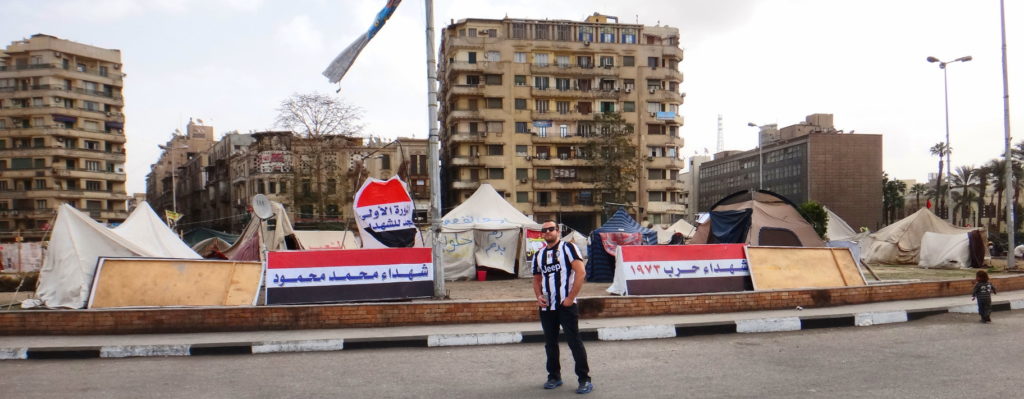
There had been rumors about shots being fired into the crowd the night before. So the atmosphere was a bit tense while entering the square. Inside the square, things didn’t seem very chaotic. It was mid-day Saturday and people seemed to be going about their business. A camp was set up in the middle of the square, complete with tents, some even having satellite dishes and electricity siphoned off the street lights.
Strangely, little kids seemed to be roaming around the camp, unaccompanied by adults.
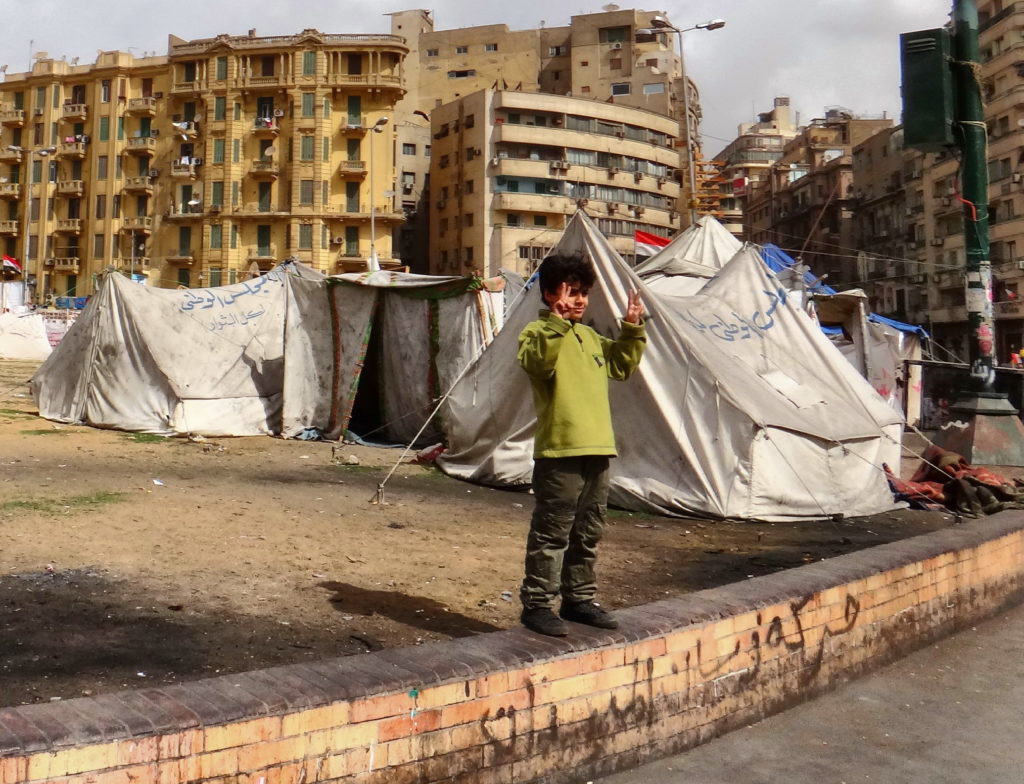
As we wandered around, our mood grew less tense. I even took out my camera to take a few pictures (something that was strongly discouraged). Bombed out vehicles acted as barricades along the route of what used to serve as a major traffic circle in Cairo.
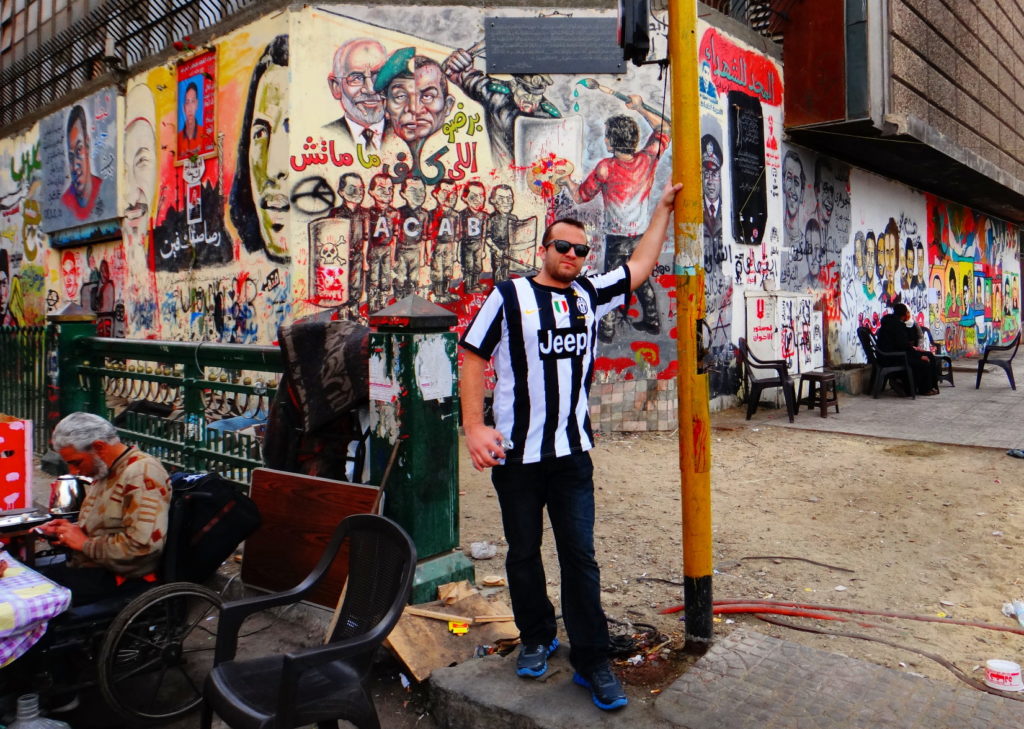
A man in a wheelchair served tea and coffee to people of the square. Everything seemed calm and normal. Then, as we turned towards the other side of the square, I noticed a figure lying on the street. At first, I just presumed it was someone asleep after a long night. As we drew closer, my heart dropped as I realized it was a deceased man with what looked like fatal bullet wounds. His blood stained the metal grate on which his body rested. Up until this point, I never really grasped the severity of this entire conflict or the grave risk faced by those present in Tahrir Square. Our guide, seemingly unfazed by the sight, asked a bystander what had happened. The man had been shot the night prior by the army during a demonstration. However, because there was no police or coroner, the body was just left there out in the open. I think this was the part of it that was most striking to me. Many people walked right by the body as if it wasn’t even there. I found myself trying to avoid staring at it and appearing startled as I was afraid that would draw negative attention to me. Finally, as we were standing there, another man came out and laid a rug on top of the body to cover it up. Only then was I bold enough to take out my little camera and snap a picture.
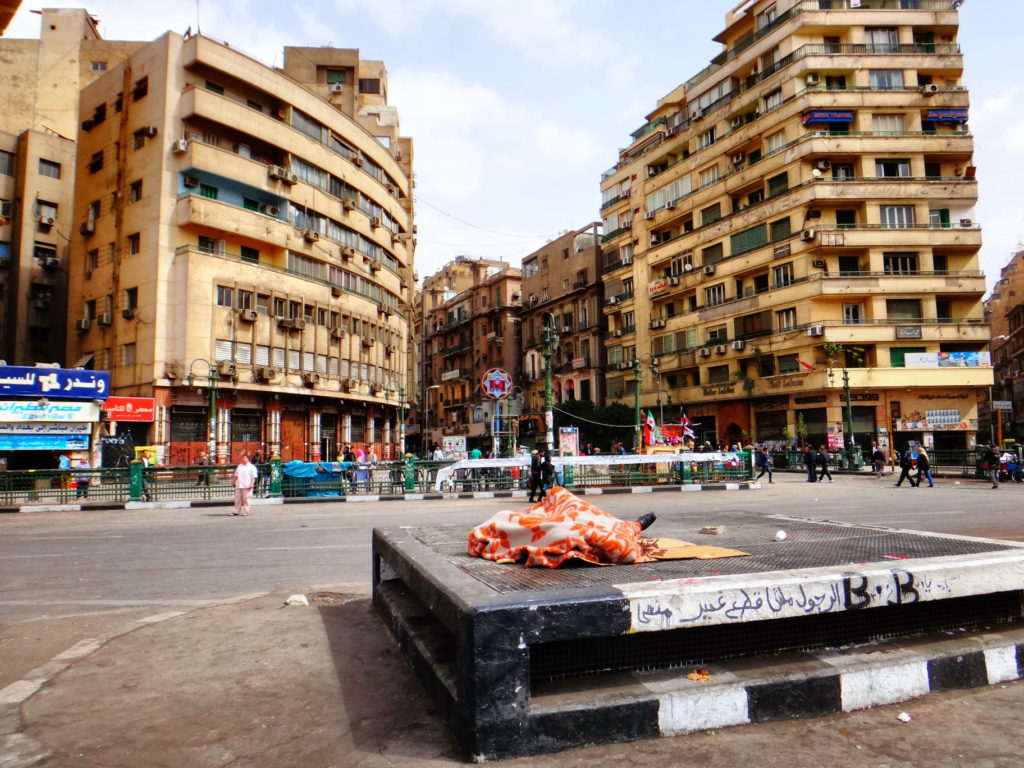
After which, we all looked at each other in silent agreement that it was time to leave. At the same time, a crowd began to gather around a man with a megaphone nearby and passersby appeared to pick up their pace a bit. It was time to leave. We had entered the belly of the beast, and had finally gained an understanding of the gravity of the situation here. You can watch a million Youtube videos and news broadcasts online, but it is only after you witness depravity first hand that you can truly understand the fear and danger faced in a place like this. Our curiosity had been satisfied, and when we finally looked under the veil, we were disgusted by what we saw. I can’t even begin to imagine what it must be like for servicemen and woman in Iraq and Afghanistan as they surely see things that are way more disturbing. The entire experience makes you put things in perspective and it makes you truly grateful for what you have. At the same time it makes you think how crazy it is that all of this stuff is going on and most Americans and other Westerners have no idea about or are just desensitized to what kind of things people in places like this experience on a daily basis. Entering Cairo was like entering a strange dimension where time, money and the entirety of our western lives did not matter. We had transcended upon a dystopia of sorts where logic and order are for the most part not present. Days of the week don’t really matter as no one has jobs. Cars are an absolute luxury as gas stations no longer have any fuel. Streets and buildings lay empty, abandoned by those fleeing the conflict. Trash and fires are dotted along roadways as sanitation, firefighting and other government services are no longer active. Even after visiting much poorer countries like Cambodia and Vietnam, the sense of hopelessness in Egypt is such that you just worry if they will ever be able to recover.
